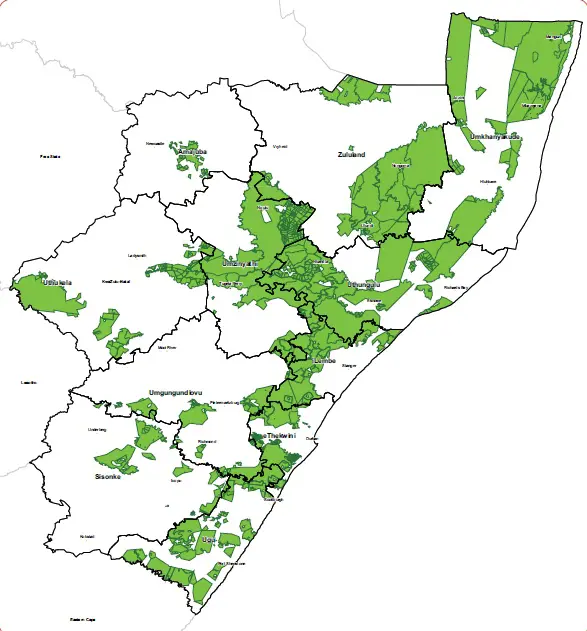Ingonyama Trust finances are not transparent, says report
According to UCT’s Land & Accountability Research Centre, the trust, which holds about 2.8 million hectares of communal land, is not compliant with the Public Finance Management Act.

Picture: © zakspeed271/123rf.com
Concerns that the Ingonyama Trust’s financial statements are not compliant with the Public Finance Management Act (PFMA) have been raised by the Land & Accountability Research Centre (LARC) at the University of Cape Town (UCT).
In a new report, LARC has called on the Ingonyama Board to be more transparent with the Trust’s financial statements.
The Trust holds about 2.8 million hectares of communal land on which more than five million people live. It was established in 1994 under the Ingonyama Trust Act, with the reigning Zulu king as the sole trustee.
The Ingonyama Trust Board was established in 1997 to administer the affairs of the trust and manage its finances.
But since 2016, the Trust and the Board have been operating as “separate legal entities”, the report says, with the Board submitting its financial statements, but not the Trust.
Since 2019/20 the Board no longer prepares the Trust’s financial statements in accordance with the PFMA, a situation apparently accepted by the Auditor-General.
As a result, “information in relation to Trust income and the disbursement of funds to the beneficiaries of the Trust is vaguely reported, with no mention made of how distributions, if any, are put to use,” said the report.
“Failure to comply with PFMA means that the Trust’s finances are not properly transparent nor is it accountable to its primary stakeholders,” the report says.
“The Board should be encouraged to act boldly and ensure that the way this trust operates is open and transparent … It should be administered for the material welfare and social wellbeing of the beneficiaries,” Janet Bellamy, author of the report, said at its launch.
The beneficiaries of the Trust are the tribes and communities living on Ingonyama land.
In June 2021, the Trust’s beneficiaries won in a matter in Pietermaritzburg High Court, which ordered the Trust to refund money it had received from forcing them to sign lease agreements. This judgment was upheld in the Supreme Court of Appeal (SCA).
The Legal Resources Centre (LRC), who represented the beneficiaries, said that “converting existing land rights into leases completely undermines their security of tenure”.
“The group [consists] of single mothers, factory workers, pensioners, farmers and fathers trying to provide for their families,” the LRC said.
LARC wants the Trust to be listed as a public institution on the PFMA schedule (currently only the Board is listed).
It wants the Parliamentary Portfolio Committee for Agriculture, Land Reform and Rural Development to investigate disbursements to beneficiaries, and Parliament to investigate the lack of transparency in performance reporting, which is “vital in order to permit monitoring of the Trust’s performance in supporting Trust beneficiaries”.
Parliament should investigate and monitor performance targets, it says.
The report calls on the Auditor-General to authorise a forensic audit of the Trust’s financial statements. In November 2021, the portfolio committee also called for this.
LARC said that Ingonyama Holdings, a private company set up in 2019, should be required to submit financial statements to Parliament.
Siyamdumisa Vilakazi, CFO of the Ingonyama Trust Board, thanked LARC at the launch of the report. “This is one economic unit. This is one entity … There should not be separate levels of accountability,” he said.
The Auditor-General’s office told GroundUp it needed more time to comment. Comment will be added when received.
The Ingonyama Trust said it needed time to study the report before commenting.

The Inyongama Trust holds about 2.8 million hectares of communal land in KwaZulu-Natal. Picture from its Annual Report 2015/16.
This article first appeared on GroundUp. Read the original article here.